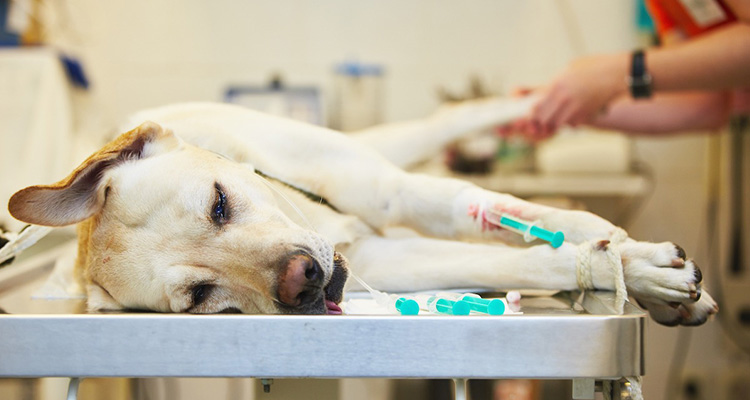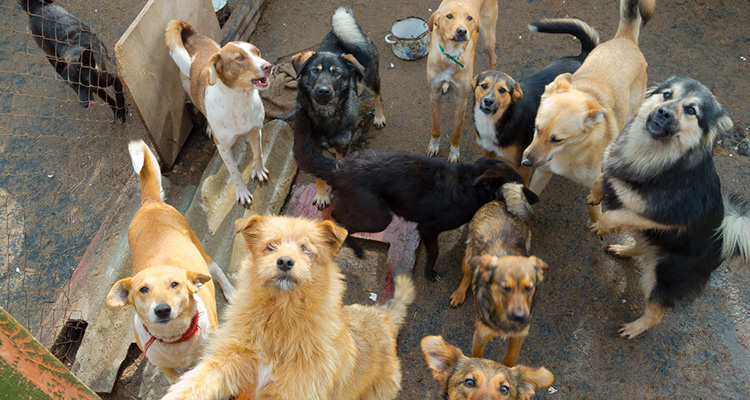Giving a new home to a poor soul from the shelter is a wonderful idea. Once the decision to adopt a shelter dog is final, the search for the right four-legged friend can begin. But what should you consider when a dog from the shelter is about to move in? iHugDogs has the checklist for you!
Acquiring a pet should be a well-considered decision, and the same goes for adopting a shelter dog.
There are several questions you should definitely ask yourself in advance, including:
- Do you have enough time for the dog?
- Can you afford the costs?
- Do you have enough space, and are you allowed to have a dog?
- Are there allergies in the family or even with you?
- Can the new family member be cared for by family or friends if needed?
You must be aware that a shelter dog may, under certain circumstances, not be able to be left alone.
Behavioral issues are also possible, such as:
- Aggression towards other dogs
- Strong hunting instinct
- Tendency to run away
It is generally not necessary to be prepared for all eventualities, but you should think about possible solutions in advance and consider where and from whom you can get help if needed.
What does it cost to adopt a shelter dog?
The costs for the acquisition itself are usually around $250 to $400. For initial equipment, you should budget about the same amount again. Then there are ongoing costs, which are usually well calculable, and unforeseeable costs, for example, those incurred at the vet, which you can, however, secure yourself against.
Ongoing costs include:
- Food
- Liability insurance
- Dog school or trainer
- Surgery and health insurance

Especially with pet health insurance, you can protect yourself against high vet bills: you pay a certain amount every month, and the insurer covers the costs of treatments and medications.
Common diseases in dogs
There are several diseases that can affect your dog and whose treatment can be expensive:
- Ear infections
- Parasite infestations (fleas, ticks, worms)
- Diabetes Mellitus
- Mediterranean diseases in former stray dogs from southern countries
- Joint diseases such as hip dysplasia, spondylosis, and elbow dysplasia
- Age-related diseases such as arthritis, cataracts, and heart problems
A shelter dog is about to move in—what qualifications do you bring?
If you have decided to adopt a shelter dog, you should consider:
- How much experience do you have with dogs?
- Does the dog have to meet certain conditions? For example, should it be familiar with children or be suitable as a second dog?
- Can you handle (strong) hunting instincts?
- Do you want a calm representative?
- Do you prefer a male or female? Do you have preferences regarding size and weight?
Once you have answered these questions, you can significantly narrow down your search and help shelter staff suggest a suitable four-legged friend.
Where to find a shelter dog?
There are now many animal welfare organizations that rehome dogs. In the first step, you can research the animal shelters near you and inquire there.
A visit during opening hours is also an option. Animal welfare organizations usually have websites—there you can find at least some of the dogs available for adoption and relevant information. Worldwide animal welfare organizations also advertise their animals on iHugDogs.

Once you have found a suitable dog you want to adopt, there is no way around the so-called protection contract. These contracts are concluded with the prospective dog owner when adopting animals—this applies to both animal shelters in the US and animal welfare organizations abroad.
The protection contract regulates both duties and rights, making it of interest to both parties. For example, you must ensure the appropriate care of the dog and allow the organization to check it accordingly. You are not allowed to breed with an adopted pet and must, if still necessary, have it neutered at an appropriate age. Additionally, you cannot simply resell your new roommate.
Beware of dubious animal welfare organizations
The good news is that falling into the hands of an unscrupulous animal welfare organization is unlikely. But because it is still possible, here are a few tips: It is advisable to search the internet for the name of an animal welfare organization—this way, potential fraudsters can be quickly identified. Look for a tax number on the website and a fixed contact person.
If you want to be completely sure, ask friends and acquaintances for recommendations. Recommendations can also be found quickly on social networks like Facebook and in dog forums. If you have a strange feeling, it’s better to refrain from adopting the dog.


